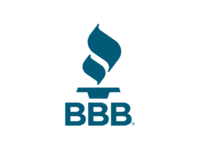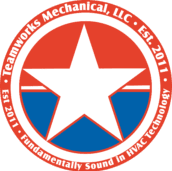Boiler Installation Process & Considerations: A Comprehensive Guide
As the heart of any heating system, a boiler plays a crucial role in providing comfort and warmth to our homes. Whether you are replacing an old boiler or installing a new one, the process requires careful consideration and planning.
Assessing Your Heating Needs
In this blog post, Teamworks Mechanical explains the boiler installation process and explore the key considerations that homeowners should keep in mind.
Before beginning the installation process, it is essential to determine your heating requirements. Factors like the size of your property, the number of rooms, and the desired level of heating efficiency should be taken into account. Conducting a professional energy audit can help identify any insulation issues or heat loss, enabling you to select the right-sized boiler for optimal performance.
Choose the Right Boiler Type
Boilers come in various types, each catering to specific heating needs. The three primary types are combi boilers, system boilers, and regular boilers. Combi boilers are space-saving and provide hot water on demand, while system boilers are ideal for larger homes with multiple bathrooms. Regular boilers, also known as conventional boilers, are suited for properties with traditional heating systems. Selecting the right type depends on your household's requirements, available space, and budget.
Hiring a Qualified Installer
Boiler installation is a complex process that demands technical expertise and precision. Hiring a qualified and experienced installer is crucial to ensure the safe and efficient functioning of your heating system. Look for certifications, licenses, and references when selecting an installer. Professional installers will guide you through the entire process, including compliance with local building regulations and safety standards.
Consider Energy Efficiency
Energy-efficient boilers not only reduce your carbon footprint but also help you save on energy bills in the long run. Look for boilers with high-efficiency ratings, indicated by the Annual Fuel Utilization Efficiency (AFUE) or Seasonal Efficiency of Domestic Boilers (SEDBUK) rating. Opting for a condensing boiler can further enhance energy efficiency by recovering heat from the flue gases.
Location & Ventilation
Deciding on the location for your boiler is essential for proper functioning and maintenance. It is commonly placed in the kitchen, utility room, or garage. Ensure that the chosen spot has proper ventilation and meets the manufacturer's clearances to prevent overheating and promote optimal airflow.
Upgrading Controls and Thermostats
Modern boilers are compatible with advanced heating controls and smart thermostats. Upgrading your controls can enhance the overall efficiency of your heating system. Programmable thermostats allow you to set heating schedules based on your lifestyle, preventing energy wastage.
Regular Maintenance
Boilers require regular maintenance to ensure peak performance and extend their lifespan. Consider a boiler service plan with your installer to conduct annual servicing and safety checks. Regular maintenance not only enhances efficiency but also identifies potential issues early on, preventing costly repairs down the line.
A well-planned and professionally executed boiler installation is crucial for ensuring a warm and comfortable home environment while keeping energy costs in check. By assessing your heating needs, choosing the right type of boiler and the right boiler size, hiring a qualified installer, and emphasizing energy efficiency and regular maintenance, you can enjoy a reliable and efficient heating system for years to come. Remember, investing in a high-quality boiler installation today will pay off in the form of enhanced comfort and savings in the long run.




















